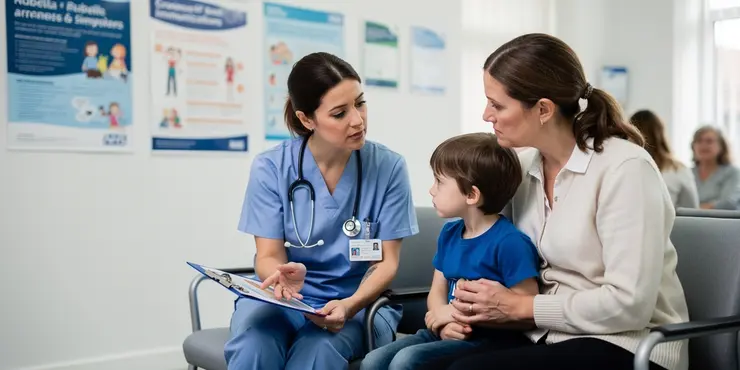
Find Help
More Items From Ergsy search
-
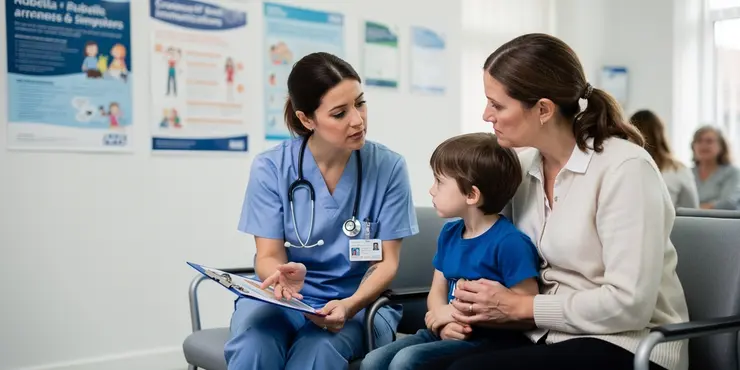
Is Rubella the same as measles?
Relevance: 100%
-
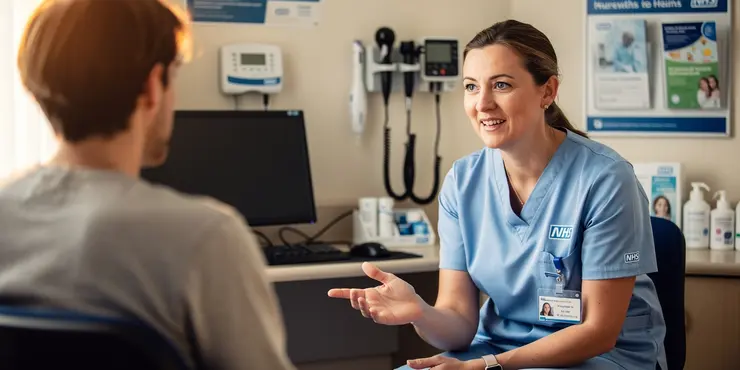
What is Rubella?
Relevance: 77%
-
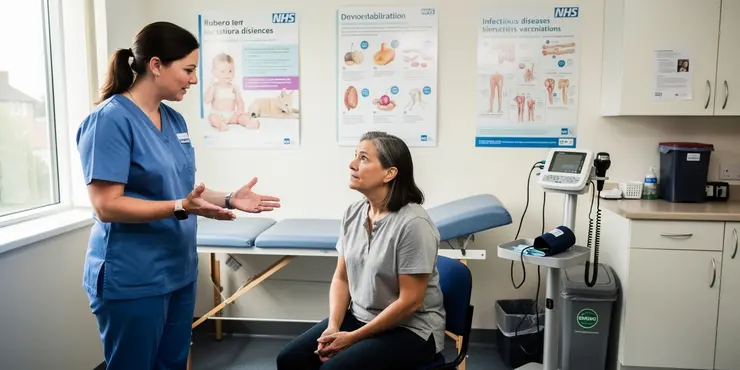
How serious is Rubella?
Relevance: 72%
-
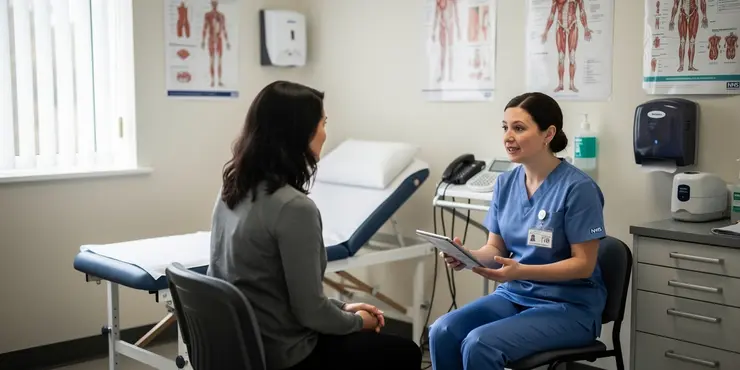
How is Rubella transmitted?
Relevance: 68%
-
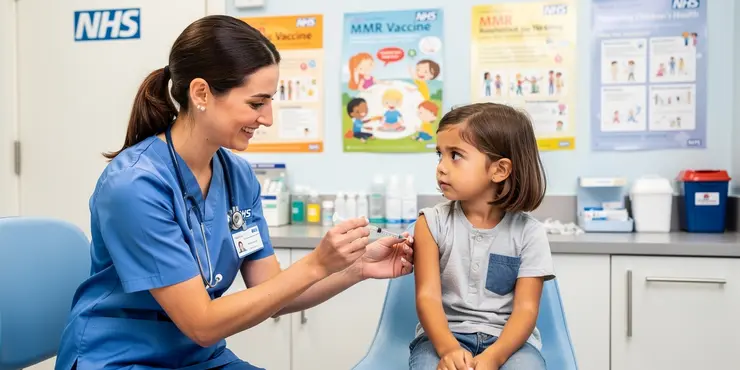
Can Rubella be prevented?
Relevance: 65%
-
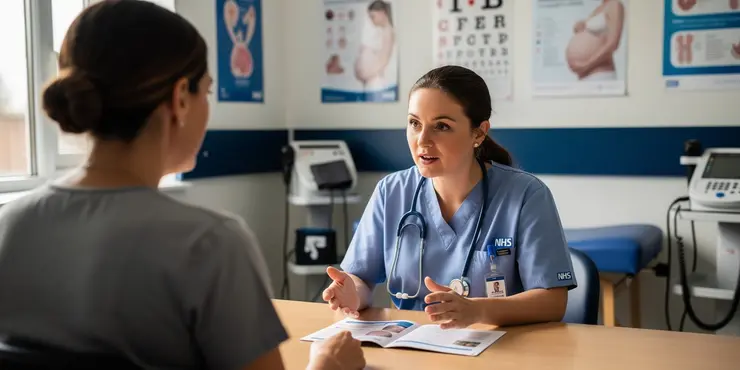
What is congenital rubella syndrome?
Relevance: 65%
-
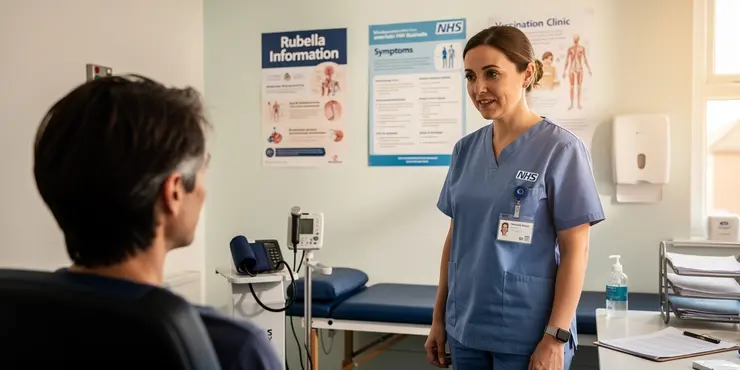
What are the symptoms of Rubella?
Relevance: 64%
-
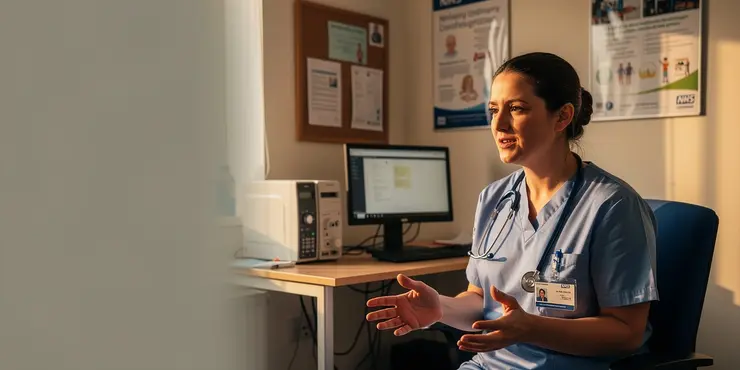
How is Rubella diagnosed?
Relevance: 63%
-
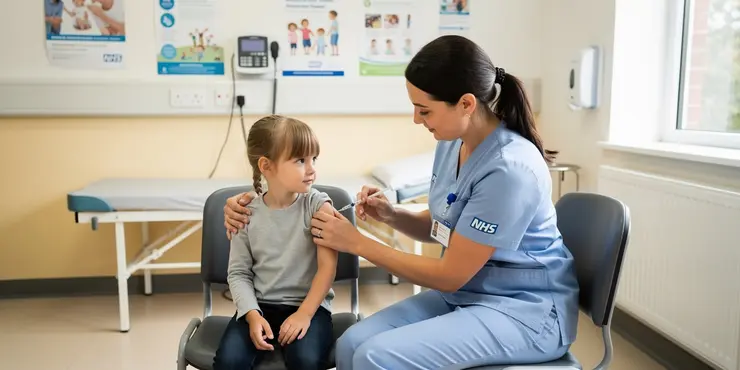
Who should receive the Rubella vaccine?
Relevance: 60%
-
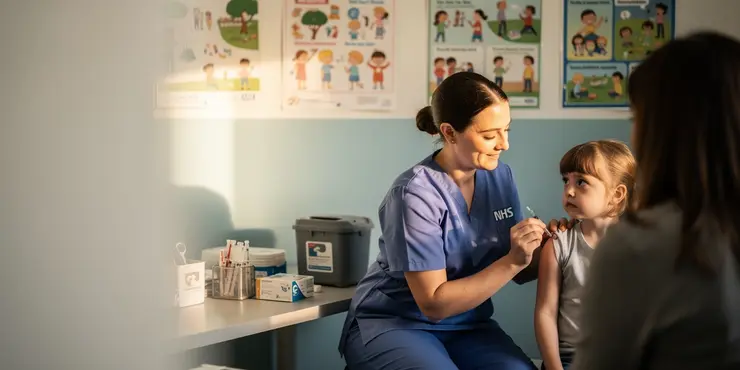
Measles
Relevance: 59%
-
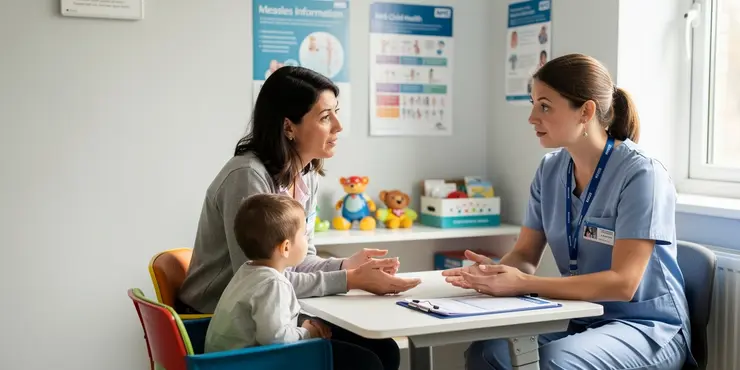
Is there a treatment for measles?
Relevance: 58%
-
Is there a treatment for measles?
Relevance: 57%
-
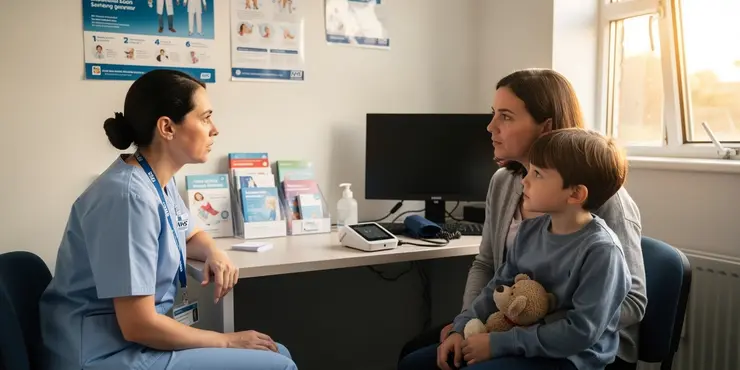
Are measles outbreaks common in the UK?
Relevance: 56%
-
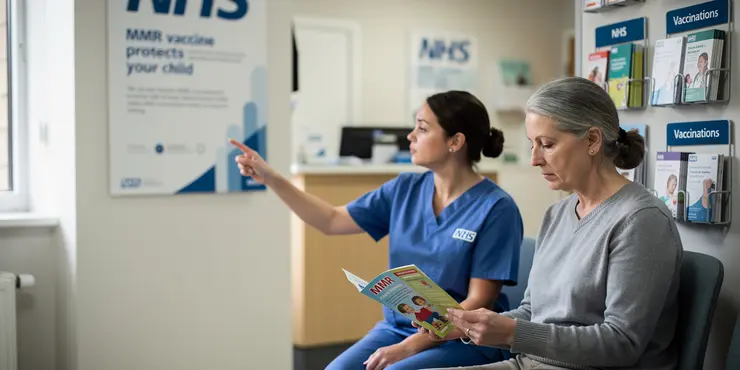
Are measles cases rising in the UK?
Relevance: 55%
-
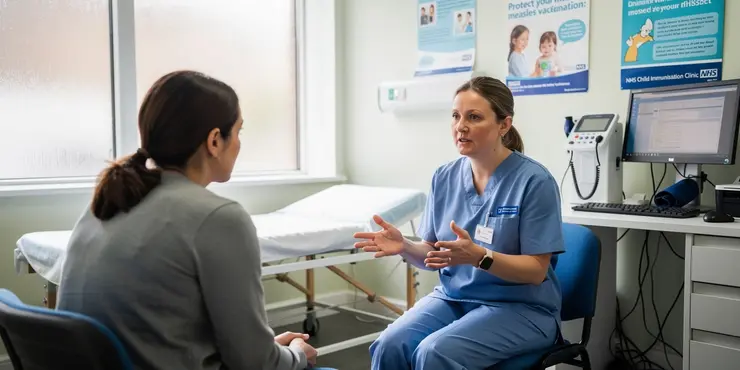
Can measles be serious?
Relevance: 55%
-
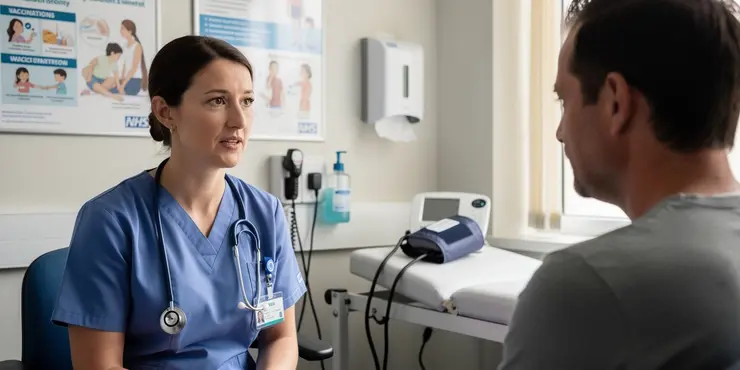
How is measles transmitted?
Relevance: 55%
-
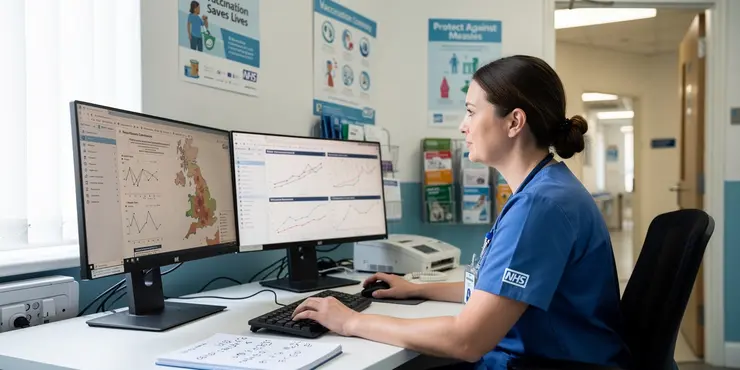
How does the UK monitor measles outbreaks?
Relevance: 55%
-
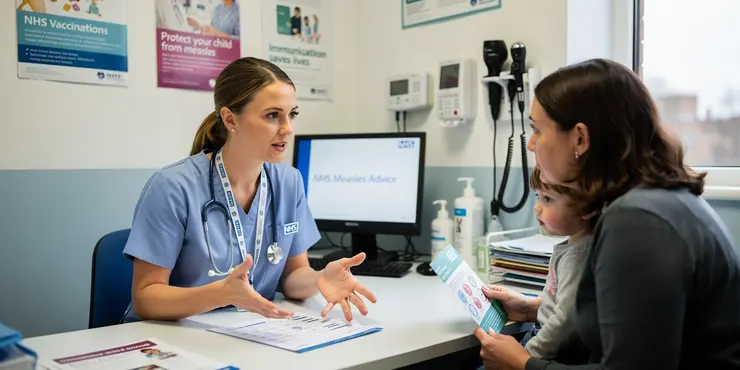
How is measles spread?
Relevance: 54%
-
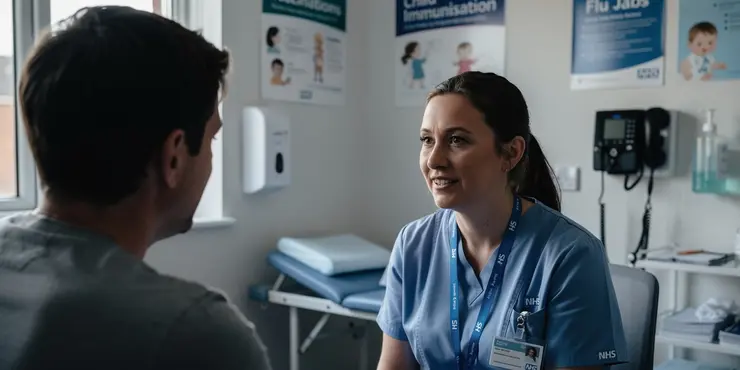
Why is measles less common in the UK?
Relevance: 54%
-
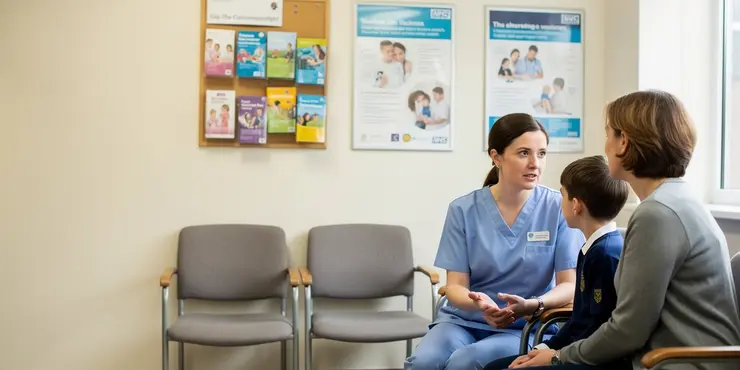
How can measles be prevented?
Relevance: 53%
-
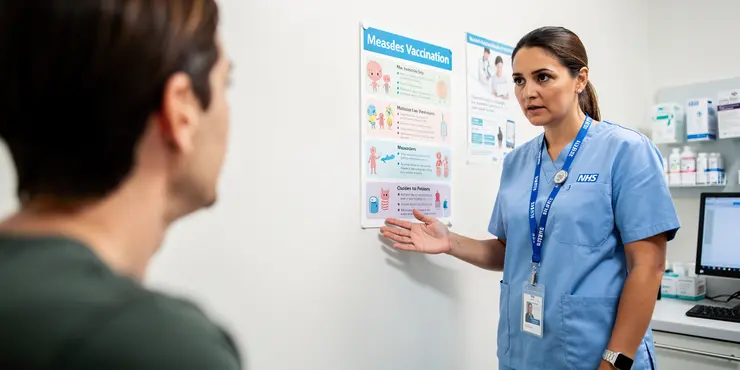
Are measles more common outside of the UK?
Relevance: 53%
-
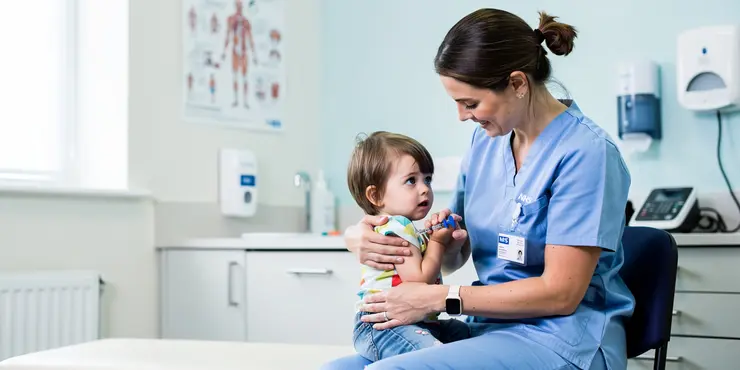
Can measles cause complications?
Relevance: 53%
-
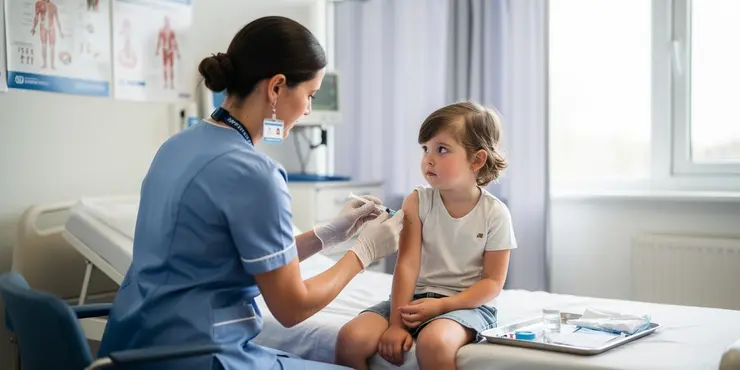
What is measles?
Relevance: 53%
-
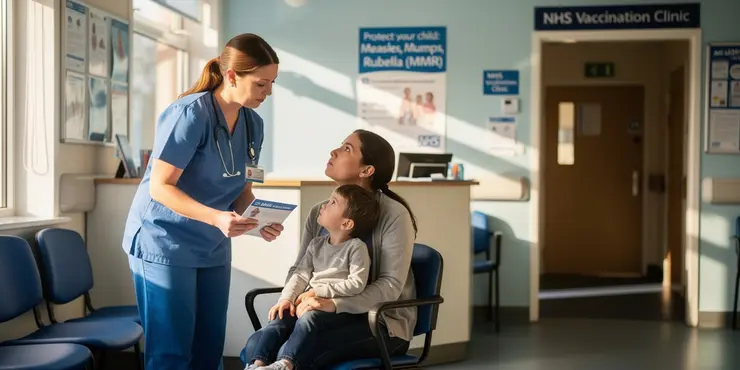
Are measles cases currently rising in the UK?
Relevance: 53%
-
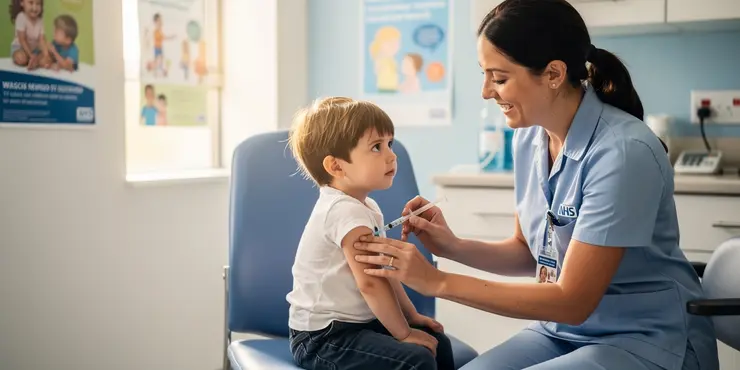
What is the current measles vaccination coverage in the UK?
Relevance: 52%
-
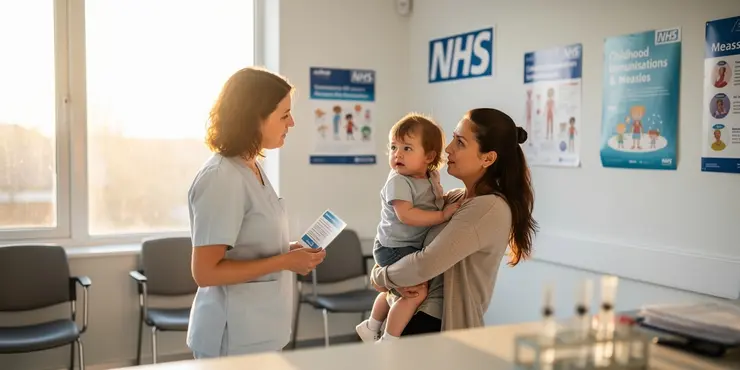
How contagious is measles?
Relevance: 52%
-
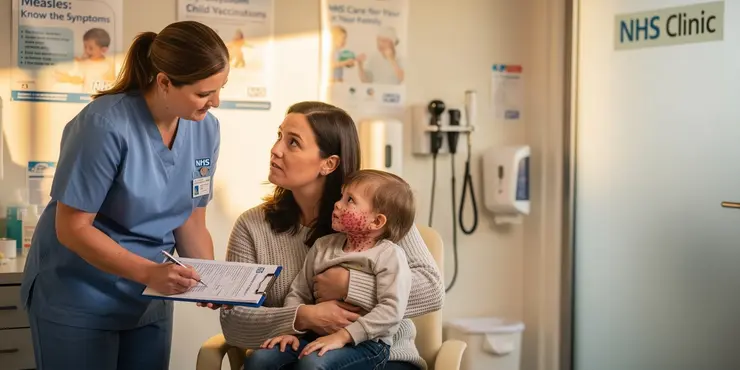
Can measles be treated?
Relevance: 52%
-
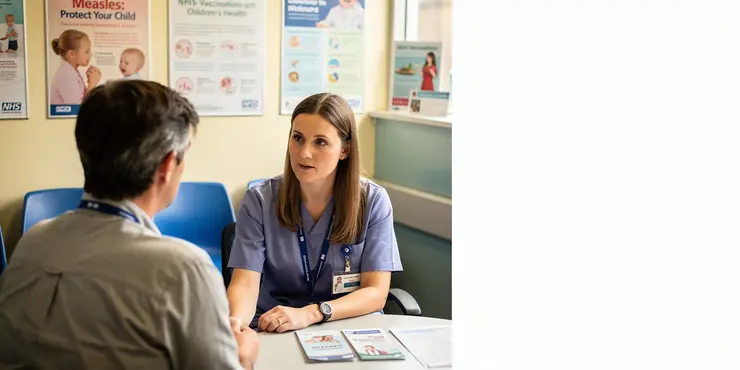
How is measles transmitted?
Relevance: 51%
-
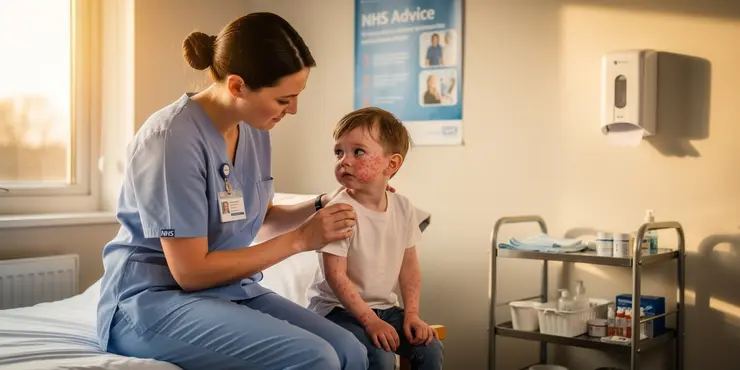
What are the symptoms of measles?
Relevance: 51%
-
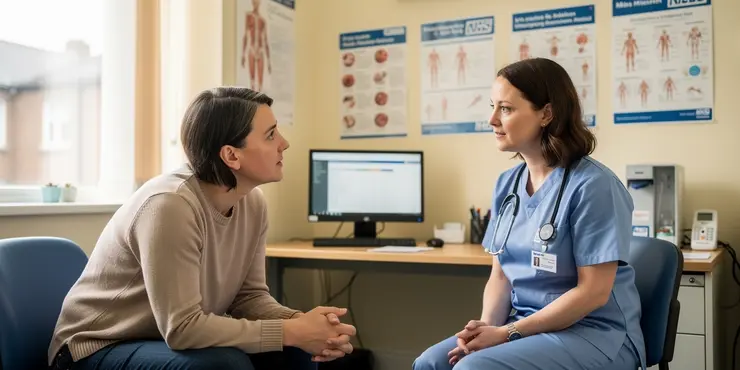
What should I do if I suspect I have measles?
Relevance: 51%
-
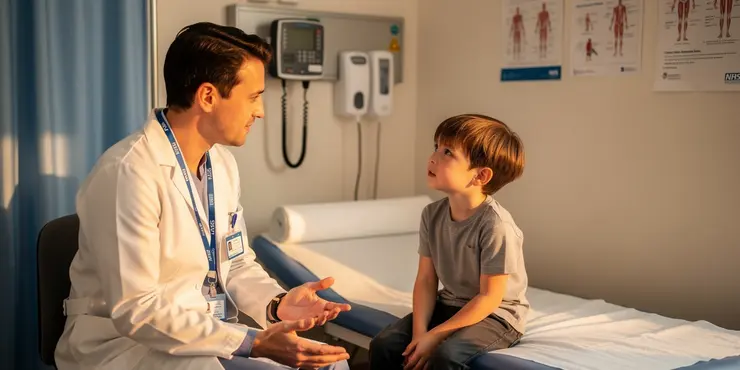
Why are measles outbreaks still occurring?
Relevance: 51%
-
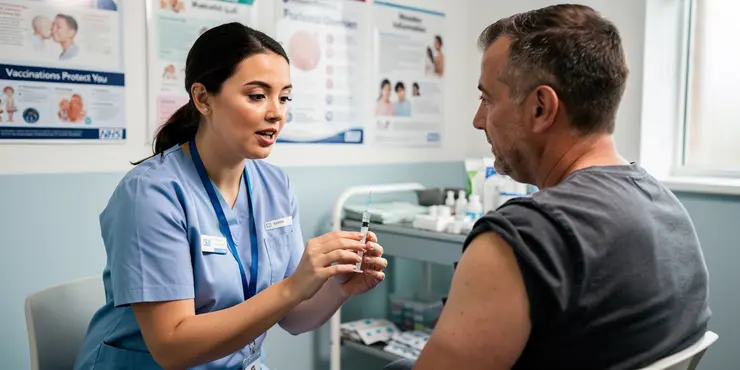
Can the measles vaccine be given to adults?
Relevance: 51%
-
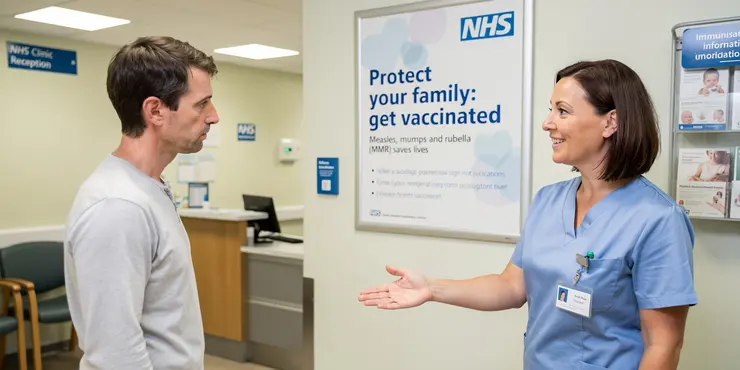
What is causing the rise in measles cases in the UK?
Relevance: 51%
-
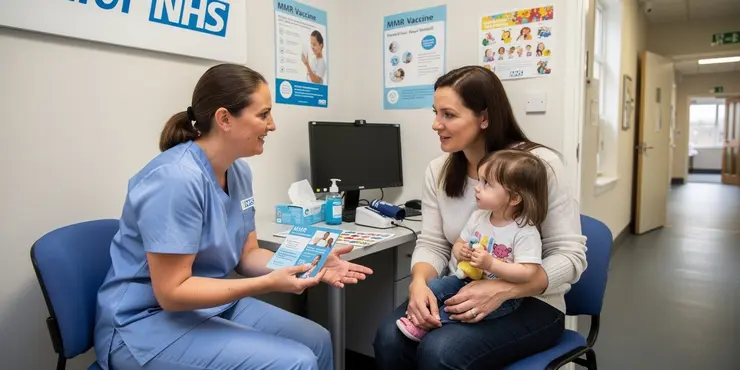
How can measles outbreaks be prevented?
Relevance: 50%
-
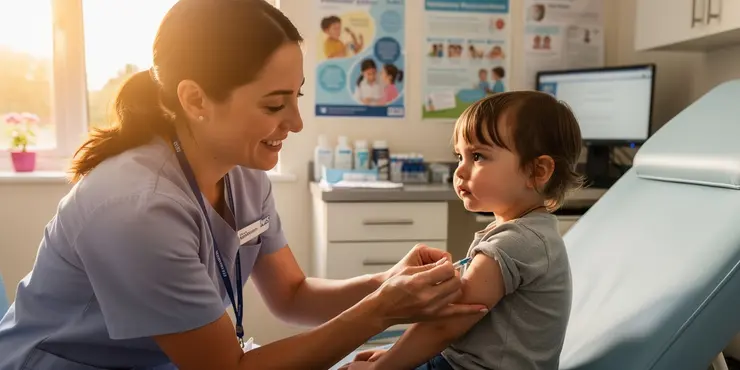
How does vaccination affect measles rates?
Relevance: 50%
-
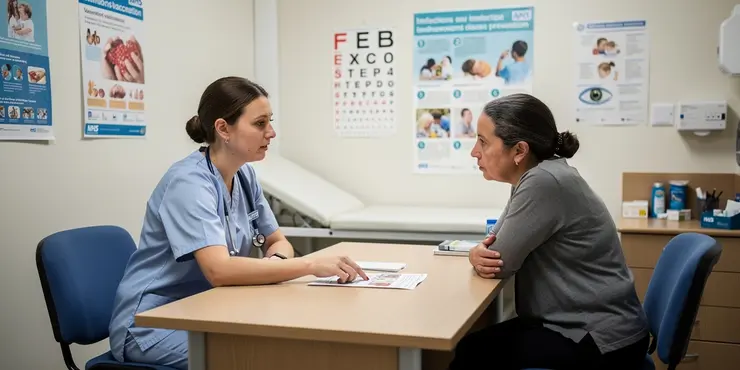
What should you do during a measles outbreak?
Relevance: 49%
-
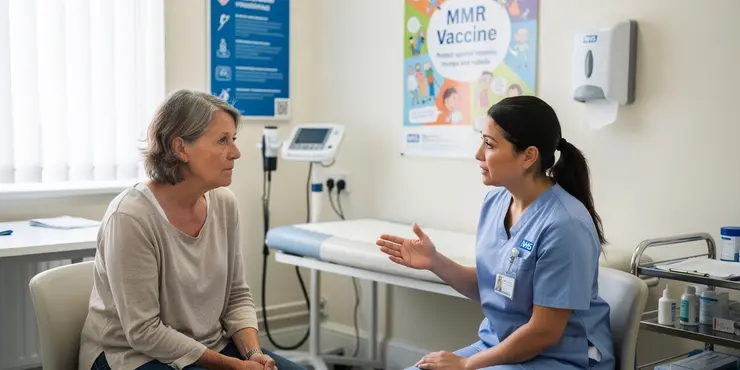
Can adults get measles?
Relevance: 49%
-
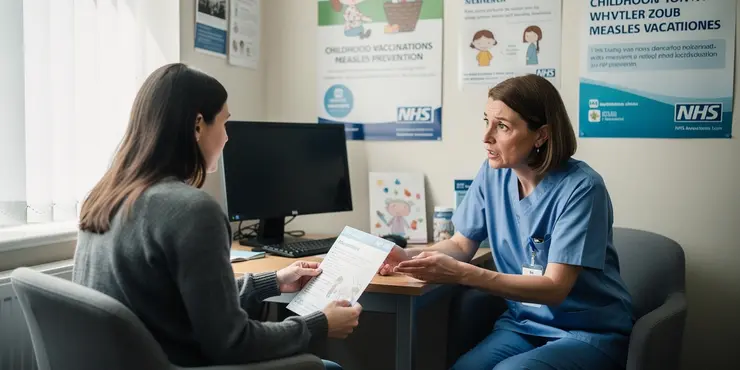
Is there a risk of global spread if measles cases rise in the UK?
Relevance: 49%
-
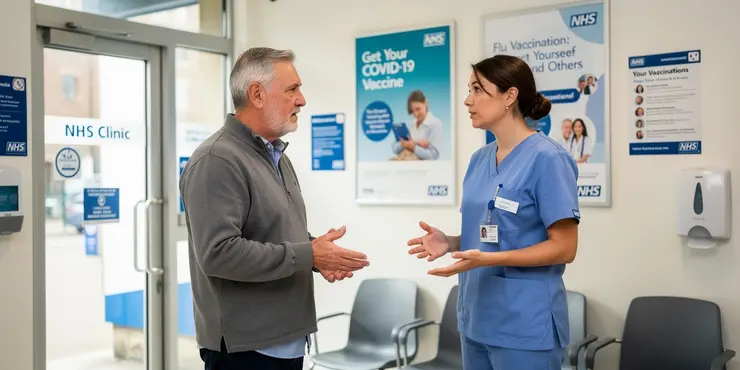
Are adults in the UK at risk from measles?
Relevance: 49%
-
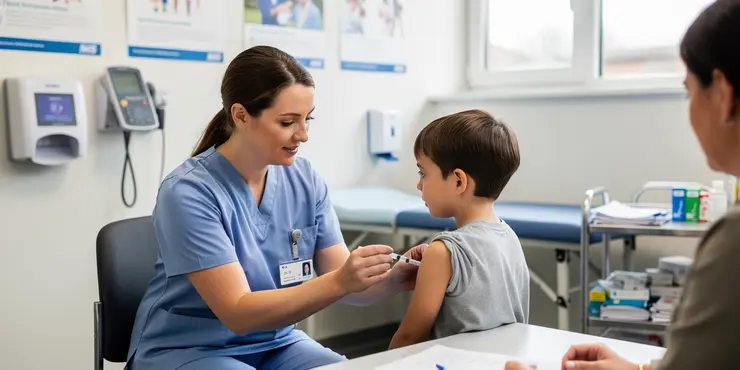
Can you get measles more than once?
Relevance: 49%
Introduction
Rubella and measles are often confused due to their similar symptoms and the fact that both are contagious viral infections. However, they are caused by different viruses and have distinct characteristics. Understanding the differences between the two is essential, especially regarding vaccination and prevention strategies.
Causes
Rubella is caused by the rubella virus, while measles is caused by the morbillivirus. Both belong to the Paramyxoviridae family but are distinct in their specific viral origins. The rubella virus is generally milder in its effects compared to the more aggressive morbillivirus responsible for measles.
Symptoms
Both diseases present with a rash, but there are notable differences. Measles usually starts with a higher fever, cough, runny nose, and red eyes, followed by a widespread skin rash. In contrast, rubella's symptoms are typically milder, with a low-grade fever, sore throat, and a rash that starts on the face and spreads to the rest of the body. Joint pain is also common in rubella.
Transmission
Both rubella and measles are highly contagious and spread through respiratory droplets when an infected person coughs or sneezes. The measles virus can remain viable on surfaces and in the air for up to two hours, making it particularly easy to spread. Rubella, while contagious, is less so than measles.
Complications
Complications from measles can be severe and include pneumonia, encephalitis, and in some cases, death. Young children and immunocompromised individuals are particularly at risk. Rubella, on the other hand, is usually mild in children but can have devastating effects during pregnancy, leading to congenital rubella syndrome, which can cause serious birth defects.
Vaccination
The MMR vaccine (Measles, Mumps, Rubella) is a crucial tool in preventing both measles and rubella. This vaccine is part of the UK childhood immunisation schedule and is typically given in two doses. The first dose is administered to children around 12 months of age, with a follow-up dose before starting school. Vaccination not only protects individuals but also helps achieve herd immunity, reducing the spread within communities.
Conclusion
Although rubella and measles share some similarities in symptoms and mode of transmission, they are distinct diseases caused by different viruses. Understanding these differences is important for effective prevention and management. Vaccination remains the best strategy to control and eventually eradicate these infectious diseases, safeguarding both individual health and public well-being.
Introduction
Rubella and measles are diseases that can look alike because they have similar signs. Both are spread by viruses and can make you sick. But, different viruses cause them, and they have unique features. Knowing how they are different is important, especially for getting the right vaccines to stop them.
Causes
Rubella is caused by the rubella virus. Measles is caused by another virus called the morbillivirus. Even though they come from the same virus family, they are different. Rubella is usually less severe than measles.
Symptoms
Both diseases cause a rash, but there are clear differences. Measles often starts with a high fever, cough, runny nose, and red eyes. A rash follows and spreads all over the body. Rubella usually causes milder sickness, with a low fever, sore throat, and a rash starting on the face. Rubella can also cause joint pain.
Transmission
Both rubella and measles spread easily from person to person through tiny droplets in the air when someone coughs or sneezes. Measles is very easy to catch because the virus can live in the air or on surfaces for up to two hours. Rubella spreads too but is less contagious than measles.
Complications
Measles can cause serious problems like lung infection (pneumonia), brain swelling (encephalitis), and sometimes even death. Little kids and people with weak immune systems are most at risk. Rubella is usually mild in children, but if a pregnant woman gets it, it can be very harmful to her baby, causing birth defects.
Vaccination
The MMR vaccine protects against measles, mumps, and rubella. It's important for stopping these diseases. In the UK, children get this vaccine twice, first at about 12 months old and again before starting school. Vaccines help protect not just the person who gets them but also others around them by stopping the spread of the disease.
Conclusion
Rubella and measles may seem alike because of similar signs and how they spread, but they are different diseases. Knowing these differences helps in stopping them. Getting vaccinated is the best way to protect yourself and others from getting these diseases and helps keep everyone healthier.
Frequently Asked Questions
Is rubella the same as measles?
No, rubella and measles are caused by different viruses and are distinct diseases.
What causes rubella?
Rubella is caused by the rubella virus.
What causes measles?
Measles is caused by the measles virus, which is a different virus than rubella.
Are rubella and measles part of the same vaccine?
Yes, the MMR vaccine protects against measles, mumps, and rubella.
What are common symptoms of rubella?
Rubella symptoms can include a rash, fever, sore throat, and swollen lymph nodes.
What are common symptoms of measles?
Measles symptoms can include a high fever, cough, runny nose, inflamed eyes, and a red rash.
How are rubella and measles transmitted?
Both rubella and measles spread through respiratory droplets when an infected person coughs or sneezes.
Is rubella considered as severe as measles?
Rubella generally causes milder illness than measles, but it can be serious in pregnant women.
Why is rubella particularly dangerous in pregnant women?
Rubella can cause serious birth defects if a woman is infected during pregnancy, a condition known as congenital rubella syndrome.
Can both rubella and measles be prevented by vaccination?
Yes, both can be effectively prevented by the MMR vaccine.
What is the incubation period for rubella?
The incubation period for rubella is typically 14 to 21 days.
What is the incubation period for measles?
The incubation period for measles is about 10 to 14 days from exposure to the first symptoms.
Can rubella and measles occur at the same time?
It is rare but not impossible due to the different viruses causing the diseases.
How long does it take to recover from rubella?
Recovery from rubella usually takes about two weeks.
How long does it take to recover from measles?
Recovery from measles can take several weeks, depending on the severity of the infection.
What complications can arise from measles?
Complications from measles can include ear infections, diarrhea, pneumonia, and encephalitis.
Are there any long-term effects of rubella?
Rubella usually has no long-term effects in healthy individuals but can cause congenital defects in infants if the mother is infected during pregnancy.
What is congenital rubella syndrome?
Congenital rubella syndrome occurs when a pregnant woman contracts rubella, leading to severe birth defects in the baby.
Is the rash from rubella different from the rash of measles?
Yes, rubella rash tends to be milder and starts on the face before spreading, while measles rash is more intense and widespread.
How effective is the MMR vaccine in preventing rubella and measles?
The MMR vaccine is highly effective, providing about 97% protection against measles and 97% against rubella with two doses.
Are rubella and measles the same?
Rubella and measles are different illnesses.
Both can cause a red rash, but they come from different viruses.
Rubella is also called German measles.
Ask a doctor if you want to learn more.
Pictures and videos can help you understand better.
No, rubella and measles are not the same. They are caused by different germs and are different diseases.
What makes rubella happen?
Rubella happens because of a tiny germ called the rubella virus.
What makes people get measles?
Measles is a sickness you can catch.
A tiny germ called a "virus" causes measles.
You can catch the virus if someone coughs or sneezes near you.
To stay safe, wash your hands often and stay away from sick people.
Parents can talk to a doctor about a shot to help protect you from measles.
Measles happens because of a germ called the measles virus. It is not the same as the germ that causes rubella.
Do the rubella and measles vaccines come together?
Yes, the MMR vaccine stops you from getting measles, mumps, and rubella (German measles).
Here are some tips that might help:
- Listen to information about the vaccine if reading is hard.
- Ask someone you trust to explain it to you.
- Look at pictures or videos to help you understand.
What are the common signs of rubella?
Rubella is also called German measles. Here are some signs to look for:
- A red, spotty rash on the skin.
- A high temperature, over 38°C (100.4°F).
- A runny nose like a cold.
- A bad headache.
- Swollen neck glands at the back of the ear.
To help understand and remember, try these tips:
- Look at pictures of the rash.
- Ask someone to read this with you.
- Use a thermometer to check for high temperature.
- Write down any symptoms you have.
Rubella can make you feel sick. You might get a rash, a fever, a sore throat, and lumps in your neck.
What signs show you have measles?
People with measles can feel very sick. They might have a high fever. They could cough a lot. They might have a runny nose. Their eyes could be red and sore. They might also have a red rash on their skin.
It can help to use picture books or storyboards to understand more about measles. You can also ask someone to read with you or use audiobooks. If you use a phone or tablet, there are apps that can help you too.
How do people catch rubella and measles?
Rubella and measles are germs that spread when a sick person coughs or sneezes. These germs are in tiny drops of spit that can make others sick.
Is rubella as serious as measles?
Rubella and measles are illnesses. Here is some information:
- Rubella: It is a mild illness. It causes a rash, fever, and sore throat. Some people call it "German measles."
- Measles: It is a more serious illness. It can make you very sick. It causes a rash, high fever, cough, and runny nose.
Measles is usually more serious than rubella.
Here are some ways to get more support:
- Use pictures to help understand.
- Ask someone to read with you.
- Listen to the information read out loud.
- Take your time to understand.
Rubella is usually not as bad as measles, but it can be dangerous for pregnant women.
Why is rubella a big worry for pregnant women?
Rubella is a sickness that can harm a baby in a mother's tummy. This can happen if the mother gets sick with rubella while she is pregnant.
If a pregnant woman gets rubella, her baby can be born with problems. These problems can be with the baby's eyes, ears, or heart.
It's very important for pregnant women to see a doctor if they feel sick. Doctors can help keep moms and their babies safe.
Using tools like picture books or talking to someone can help understand more about staying healthy during pregnancy.
Rubella is a sickness. If a pregnant woman gets rubella, it can hurt the baby. This problem is called congenital rubella syndrome.
Can we stop rubella and measles with a vaccine?
Yes! Vaccines can help stop rubella and measles. A vaccine is a special medicine that protects us from getting sick.
You can talk to a doctor or nurse about getting a vaccine. You can also watch videos or read together with someone to learn more about how vaccines help us stay healthy.
Yes, you can stop both with the MMR shot.
How long does it take for rubella to show after you catch it?
When someone catches rubella, it takes about 2 to 3 weeks for them to start feeling sick.
How long does it take for measles to show after you catch it?
It usually takes about 1 to 2 weeks.
Try using pictures or videos to help understand better.
After you come in contact with measles, it usually takes about 10 to 14 days to start feeling sick.
Can someone have rubella and measles at the same time?
Yes, a person can have both rubella and measles at the same time. Both are illnesses that cause rashes and fever. But it is not common to have both together.
If you need help reading or understanding, try using pictures or talking to someone like a parent or teacher.
It doesn't happen often, but you can get both, because different viruses cause these illnesses.
How long does it take to get better from rubella?
If you have rubella, it usually takes about 1 to 2 weeks to feel better.
Here are some tips to help you while you heal:
- Get lots of rest. Sleep helps you get better.
- Drink plenty of water to stay hydrated.
- Ask an adult to give you medicine if you have a fever.
- Stay at home and rest, so you don’t pass rubella to others.
If you are worried or not getting better, ask a doctor for help.
It takes about 2 weeks to feel better after getting rubella.
How long does it take to get better from measles?
Measles is a sickness that makes you feel unwell. Getting better usually takes about 2 weeks.
If you have measles, it is important to rest a lot, drink water, and eat healthy foods. This helps your body heal faster.
You can also talk to a doctor. They can give you advice and medicine to help you feel better.
Make sure to wash your hands and stay away from others so they don't get sick too.
Getting better from measles can take a few weeks. This depends on how bad the sickness is.
What problems can happen with measles?
Measles can make you very sick.
It can cause ear pain, make your tummy upset, hurt your lungs, and make your head very sore.
If you want help with reading, try using audiobooks or reading apps that read for you.
What can happen if someone has rubella for a long time?
Rubella doesn’t usually cause problems for healthy people. But if a pregnant mom gets rubella, it can cause problems for the baby.
What is congenital rubella syndrome?
Congenital rubella syndrome (CRS) is a health problem in babies. It happens when a mother gets rubella (a virus) during pregnancy.
Babies with CRS can have trouble seeing, hearing, or have heart problems.
Doctors try to prevent CRS by giving vaccines to people before they have children.
For support, use picture books and simple videos to learn more about CRS. Talking with a doctor can also help.
Congenital rubella syndrome happens when a pregnant woman gets rubella, which is a type of virus. This can cause serious health problems for the baby when it is born.
Are the spots from rubella different from the spots from measles?
Rubella and measles both cause spots on the skin. But the spots look different. Here’s how:
- Rubella: Spots are usually light pink. They may cover the body but might not join together.
- Measles: Spots are red and often join together. They can be all over the body.
It's important to see a doctor if someone has spots. The doctor can tell if it's rubella or measles.
Helpful tip: Drawing a picture of the spots can help you understand the difference. Also, using a magnifying glass can help you see the spots better.
Yes, a rubella rash is usually not very bad. It starts on the face and then spreads. A measles rash is stronger and covers more of the body.
How well does the MMR vaccine stop rubella and measles?
The MMR vaccine is very good at stopping rubella and measles.
When you get the MMR vaccine, it helps your body fight off these illnesses.
The MMR vaccine keeps most people safe and healthy.
For extra help, you can:
- Talk to a doctor or nurse if you have questions.
- Look at pictures or videos to understand more.
The MMR shot works really well. It can stop you from getting measles and rubella 97% of the time if you get two shots.
Useful Links
This website offers general information and is not a substitute for professional advice.
Always seek guidance from qualified professionals.
If you have any medical concerns or need urgent help, contact a healthcare professional or emergency services immediately.
Some of this content was generated with AI assistance. We’ve done our best to keep it accurate, helpful, and human-friendly.
- Ergsy carfully checks the information in the videos we provide here.
- Videos shown by Youtube after a video has completed, have NOT been reviewed by ERGSY.
- To view, click the arrow in centre of video.
- Most of the videos you find here will have subtitles and/or closed captions available.
- You may need to turn these on, and choose your preferred language.
- Go to the video you'd like to watch.
- If closed captions (CC) are available, settings will be visible on the bottom right of the video player.
- To turn on Captions, click settings .
- To turn off Captions, click settings again.
More Items From Ergsy search
-

Is Rubella the same as measles?
Relevance: 100%
-

What is Rubella?
Relevance: 77%
-

How serious is Rubella?
Relevance: 72%
-

How is Rubella transmitted?
Relevance: 68%
-

Can Rubella be prevented?
Relevance: 65%
-

What is congenital rubella syndrome?
Relevance: 65%
-

What are the symptoms of Rubella?
Relevance: 64%
-

How is Rubella diagnosed?
Relevance: 63%
-

Who should receive the Rubella vaccine?
Relevance: 60%
-

Measles
Relevance: 59%
-

Is there a treatment for measles?
Relevance: 58%
-
Is there a treatment for measles?
Relevance: 57%
-

Are measles outbreaks common in the UK?
Relevance: 56%
-

Are measles cases rising in the UK?
Relevance: 55%
-

Can measles be serious?
Relevance: 55%
-

How is measles transmitted?
Relevance: 55%
-

How does the UK monitor measles outbreaks?
Relevance: 55%
-

How is measles spread?
Relevance: 54%
-

Why is measles less common in the UK?
Relevance: 54%
-

How can measles be prevented?
Relevance: 53%
-

Are measles more common outside of the UK?
Relevance: 53%
-

Can measles cause complications?
Relevance: 53%
-

What is measles?
Relevance: 53%
-

Are measles cases currently rising in the UK?
Relevance: 53%
-

What is the current measles vaccination coverage in the UK?
Relevance: 52%
-

How contagious is measles?
Relevance: 52%
-

Can measles be treated?
Relevance: 52%
-

How is measles transmitted?
Relevance: 51%
-

What are the symptoms of measles?
Relevance: 51%
-

What should I do if I suspect I have measles?
Relevance: 51%
-

Why are measles outbreaks still occurring?
Relevance: 51%
-

Can the measles vaccine be given to adults?
Relevance: 51%
-

What is causing the rise in measles cases in the UK?
Relevance: 51%
-

How can measles outbreaks be prevented?
Relevance: 50%
-

How does vaccination affect measles rates?
Relevance: 50%
-

What should you do during a measles outbreak?
Relevance: 49%
-

Can adults get measles?
Relevance: 49%
-

Is there a risk of global spread if measles cases rise in the UK?
Relevance: 49%
-

Are adults in the UK at risk from measles?
Relevance: 49%
-

Can you get measles more than once?
Relevance: 49%


